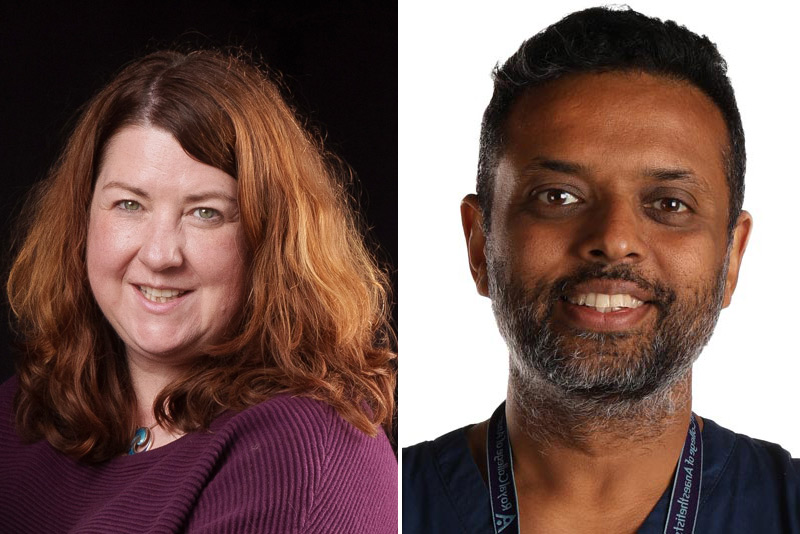9 September 2025

Dr Chris Black and Matt Brookes
More than 500 people will be recruited for a £2m clinical trial hosted in Wolverhampton which will be a world-leading study in treatment of a common cause of diarrhoea.
Three potential treatments for the symptoms of bile acid diarrhoea (BAD) will be examined in the four-year study, funded by the National Institute for Health and Care Research, with hopes the first recruit will be on board this month.
BAD occurs where there is an excess of bile acids in the large intestine, causing debilitating symptoms like watery diarrhoea, frequent bowel movements, and an urgent need for the toilet.
The Royal Wolverhampton NHS Trust (RWT) is partnering with Leeds Teaching Hospitals NHS Trust, Leeds University, Birmingham Clinical Trials Unit (BCTU) and Birmingham Community Trust (Community Connexions Team) for the study, which is sponsored by University of Birmingham and run by the BCTU.
Chief Investigator on the trial, Professor Matthew Brookes, Director of the NIHR West Midlands Regional Research Delivery Network (RDN), said: “This is a crucial trial in an often under-researched and under-funded area that will bring real relief to people suffering with bile acid diarrhoea.
“This is the largest such grant awarded to the RWT and is in recognition of our continued commitment to research that improves patients’ health outcomes, their treatment options, and their daily lives.”
Some 519 patients – including around 50 from Wolverhampton – with suspected BAD will be recruited from 20 UK centres in the COBALT (COlesevelam for Bile Acid diarrhoea with colestyramine or Loperamide including long Term follow-up) trial, which runs to 31 March 2029.
Pauline Boyle, Group Director of Research and Development at RWT, said: “This will have a massive impact on the quality of life for BAD patients.
“But more research at Trusts also increases staff retention while also improving the quality and standards of care.”

Michelle O’Connor and Tonny Veenith
Professor Tonny Veenith, Clinical Director of Research at RWT, said: “The trial will be world-leading, creating critical information that could show us which treatment options improve symptoms.”
BAD affects more than one per cent of the UK population, but many cases are wrongly diagnosed as irritable bowel syndrome.
Suspected BAD patients undergo a test called SeHCAT. However, even once correctly diagnosed, support can be poor, mainly because of limited treatment options.
Study participants will be diagnosed through routine NHS investigation for diarrhoea symptoms.
BAD is usually treated with drugs called bile acid sequestrants.
Participants will be randomly assigned one of three potentially active drugs, all currently used in the UK – colesevelam, colestyramine or loperamide.
Awareness has increased with a patient support group (BAD-UK.org) and a research network (UK‑BARDN). Members from both have helped design this study.
Michelle O’Connor, Chair of BAD-UK.org, said: “Larger cohort research studies into treatment options for the condition have to date been limited, so this is fantastic news for people living with BAD.”
Other co-applicants will come from Imperial College, University Hospitals Coventry & Warwickshire NHS Trust and the University of Birmingham.
More detail on the trial can be found NIHR Fundraising Awards.